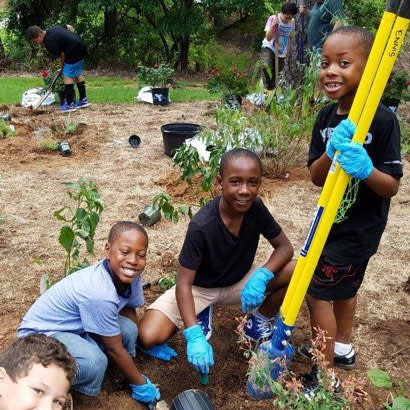
Last year, NRPA granted funds to five park and recreation agencies to implement its Wildlife Explorers program, a turnkey initiative that connects kids to nature through their local parks. The grant funding was provided by the U.S. Environmental Protection Agency to help agencies pay for program supplies and an action project that addresses a local environmental challenge.
The five agencies were New Bedford Parks Recreation and Beaches, Omaha Parks and Recreation, the City of Tukwila Parks and Recreation, Mooresville Parks & Recreation Department, and Augusta Recreation and Parks. In August, all five agencies completed implementation of the Wildlife Explorers program and environmental action project in their communities, reaching a total of 428 kids.
As a requirement of the grant, each grantee administered pre- and post evaluations to 9- and 10-year-old participants, and program leaders and agencies also completed surveys.
Surveyed kids demonstrated an overall increase in knowledge about nature, wildlife and protecting the environment. Fifty-five percent of the kids reported spending more time outdoors after the program than before it, and 76.5 percent of the children reported wishing they could spend more time outside.
A total of 23 program leaders, many of them young adults, implemented the Wildlife Explorers program in the five communities. They reported that the following things occurred during the program:
- Kids, who were previously shy, opened up.
- Kids were inquisitive and asked a lot of questions.
- Kids, who did not like group activities or clubs, really enjoyed the Wildlife Explorers program.
- Kids enjoyed being outside and getting their hands dirty.
- Kids enjoyed using tools to explore their environment.
Program leaders described how Wildlife Explorers provided them with the opportunity to learn more about nature and wildlife alongside the kids. They all said they now feel more capable leading environmental programs outdoors because of the program, and 80 percent of them said they now spend more time outside with kids in out-of-school time.
In addition to implementing the six chapters of the Wildlife Explorers workbook, each community also implemented an environmental action project — planting of native flowers and trees, mulching, creating habitat for pollinators and other wildlife, picking up trash and watering trees — to benefit the environment at their park sites.
The results from these communities indicate that the Wildlife Explorers program provides a valuable, easy-to-use framework to help park and recreation agencies lead hands-on nature exploration and learning in local parks, increasing children’s time outside and nurturing children’s curiosity and interest in nature. Explore the Wildlife Explorers workbook, which also contains the leader’s guide and is available in English and Spanish.
– Serda Ozbenian, MS, CBLP, NRPA’s Conservation Program Manager

